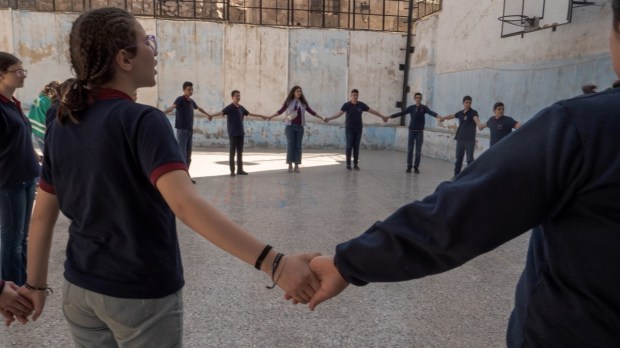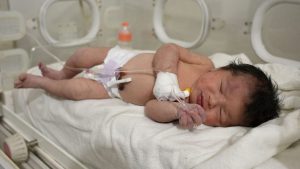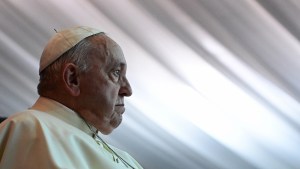In the early hours of February 6, 2023, in Syria, 29-year-old Nanor was sleeping in her bed. She describes the memories of her and her sister Natalie that night: “We were in bed when I first woke up, the ground started shaking mildly, but things started to accelerate after that.” Nanor recalls the terror and confusion they experienced as they attempted to flee their building to find safety from a massive earthquake. “When we reached down, the building’s walls started cracking, we ran further away from it … .and that’s what I remember, last thing I remember is a bright light.”
Nanor and her sister survived the three successive earthquakes that impacted Turkey and Syria that day. She was planning to be married in 2023, but plans were delayed by the many fractures Nanor suffered that put her at risk for paralysis. In the two nations, an estimated 8 million people were impacted by the earthquakes, with 55,000 casualties.
The sisters received assistance from the St. Louis Hospital in Aleppo, a hospital that is part of the “Open Hospital Project”, sponsored by AVSI. An international foundation that began in Italy, AVSI has the unique mission to work “with individuals, communities, partners, and donors to restore dignity and build resilience in the face of poverty and marginalization.”
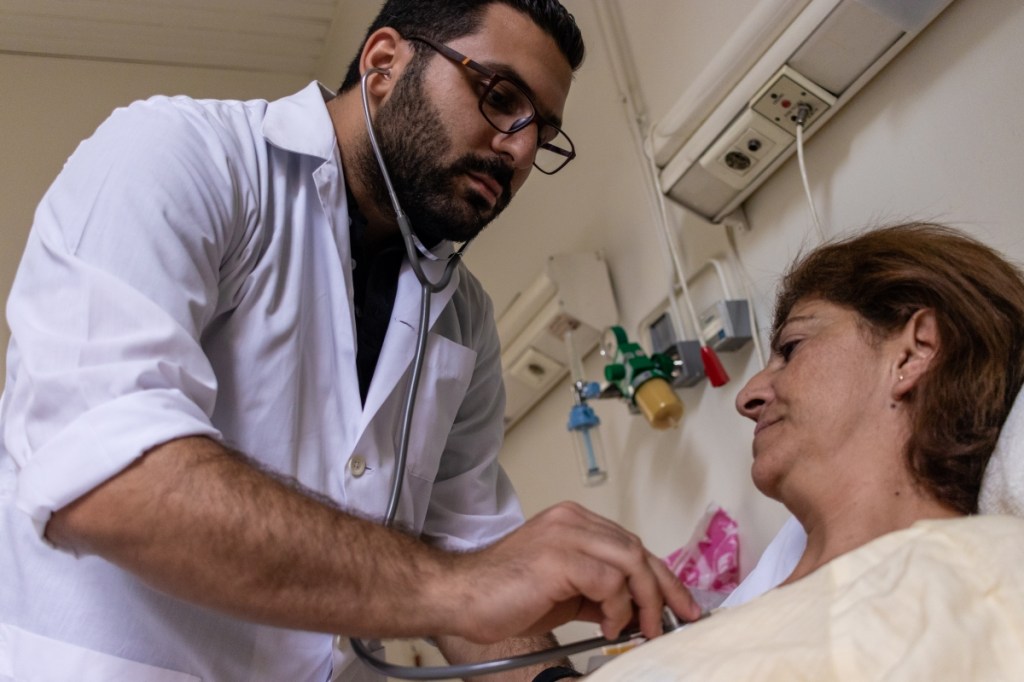
AVSI in Syria
When the earthquakes hit Syria, AVSI was already present and ready to help. Recognizing the immense need in a country worn out by war and a severe economic crisis, where 90% of people live under the poverty line, AVSI has been serving in Syria since 2015. One among several AVSI-sponsored projects, Open Hospitals supports three non-profit hospitals and four clinical dispensaries to provide free healthcare.
Within hours of the first earthquake tremors, AVSI was involved in humanitarian aid. They were able to respond with immediate medical help to earthquake victims like Nanor and Natalie. They also lent support to emergency shelters in Aleppo, distributing food, necessities, winter clothes, and school supplies. They have even rehabilitated some buildings damaged by the quakes.
AVSI-USA’s Communication Director, Angie Kilner recalls:
When it comes to responding to emergencies, time is of the essence. That’s why the presence of AVSI was so critical. With a knowledgeable staff already on the ground, they were able to respond immediately- we had resources, places to bring victims, medical staff able to help physically, others to help coordinate, etc. We already knew the area and the people that you can’t learn overnight. We also had the support of our global leadership and focal points, who knew our work in Syria and who in those early days worked tirelessly to provide technical assistance and guidance.
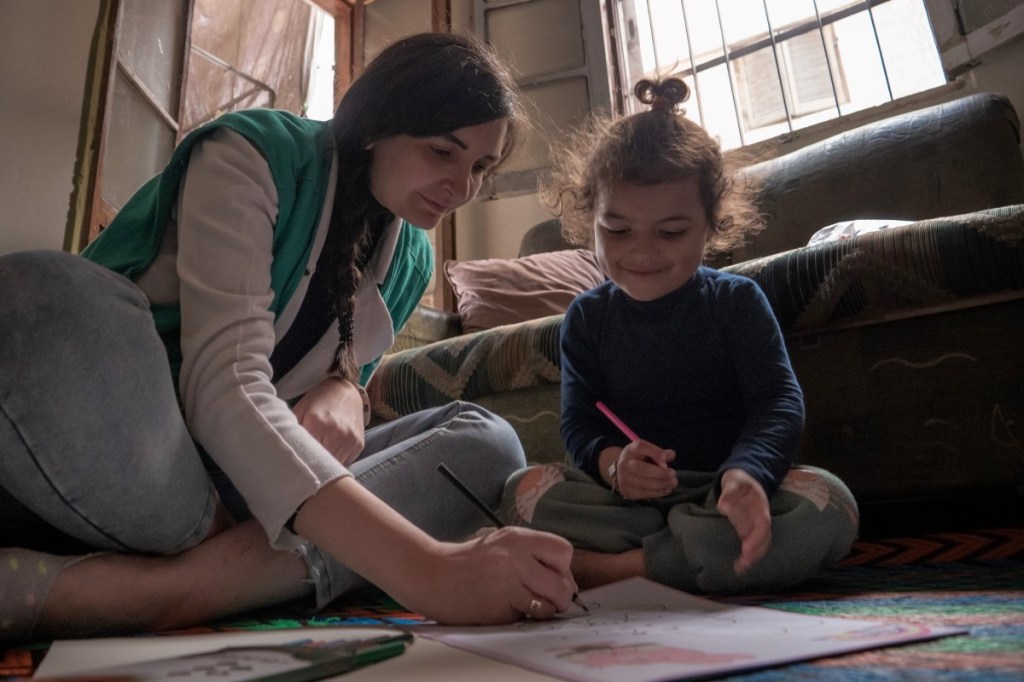
Healing trauma
In line with their mission of really valuing each individual person, AVSI also accompanied children and young people in processing the trauma they suffered. Through psycho-social activities children were not only helped materially, but able to start their journey towards healing.
Chafica Abdou Kahale, AVSI Psycho-Social Technical Advisor for Middle East and North Africa, explains in an article that beyond physical care, “psycho-social support is equally important, as many individuals are facing yet another trauma that can leave deep emotional and psychological wounds if not properly addressed. To gain insight into the psychological needs of these individuals, it is necessary to engage in active listening and empathic communication, helping them to articulate their fears, pains, and worries that may be keeping them awake at night.”
AVSI helps to provide the tools that individuals need to work through what they are experiencing. This support is individualized – recognizing that each person has unique needs as they heal.
“A home with open doors”
On September 3, 2022, Pope Francis said of AVSI’s Open Hospitals:
Open to those who are sick and poor, without distinction of ethnic or religious affiliation. This is the hallmark of a Church that seeks to be a home with open doors, a place of human fraternity. In our charitable institutions, people, and above all, the poor, must feel “at home” and experience a climate of dignified welcome.
Then, as you have rightly emphasized, two things will result: people’s bodies will be
cared for, and the social fabric will be mended by fostering the exemplary coexistence between different ethnic and religious groups that is characteristic of Syria.
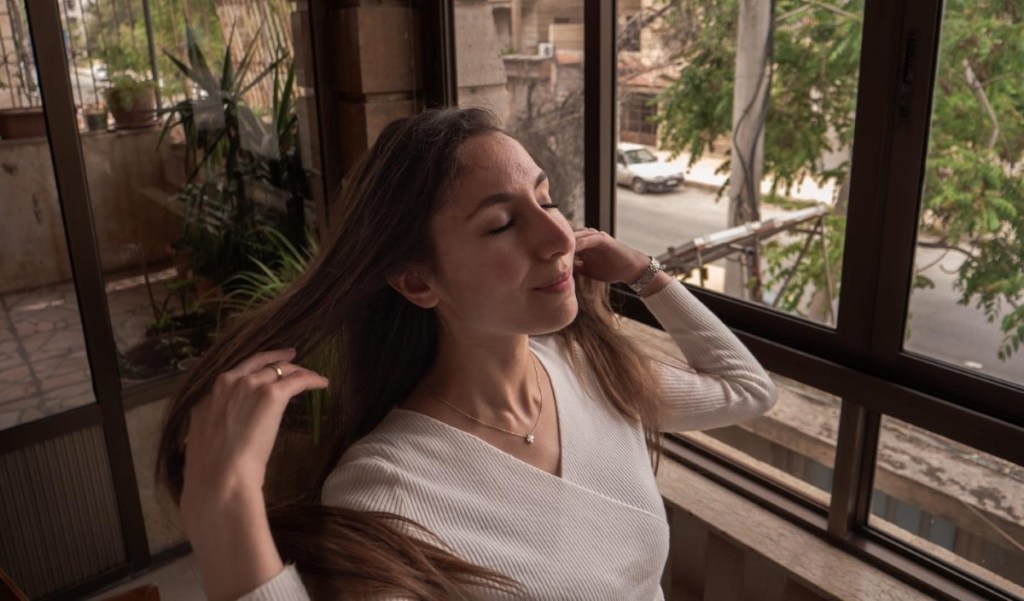
Signs of hope
Just over a year later, the work of healing and rebuilding is far from over. But Angie sees signs of hope for the future, “The people in Syria are incredibly resilient. They have been through so much and have great hope for their country, whom they love so much.”
Nanor is planning her wedding for a new date. It is her hope that just as Syria made it through these earthquakes, it will find healing after wars. She no doubt echoes the hopes of so many when she says, “I wish to finally live in peace without wars.”
To learn more about AVSI’s efforts in Syria, watch the video below:
